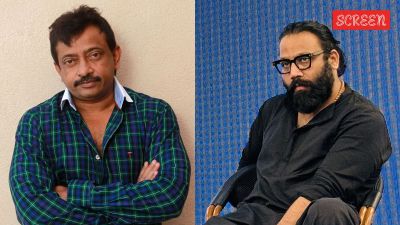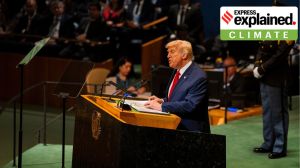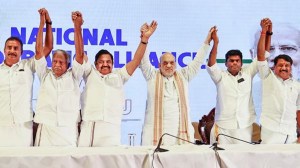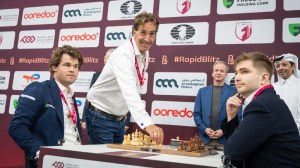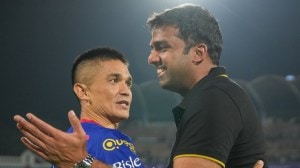Good teams don8217;t need stars8217;
New Zealand's cricket establishment feels Jeffrey John Crowe, 41, can guide the national team into the new millennium. They ended his nin...

New Zealand8217;s cricket establishment feels Jeffrey John Crowe, 41, can guide the national team into the new millennium. They ended his nine-year hibernation from cricket by entrusting him managerial responsibilities of the team currently touring India.
Q: Why did you decide to take a long break from cricket?
A: Cricket had been there for 15 to 20 years of my life. I took up golf as I felt here was a chance to break away and have something else to focus upon. It helped recharge my batteries because I knew at some point of time I would come back to the game. And now that I am back, I feel refreshed.
Q: What difference do you see between past and present New Zealand teams?
A: Quite a lot of change has occurred within the structure. I see that these players are very committed and so is the supporting mechanism around them. The resources they now have are much greater than before.
Q: 8230;And the style of functioning of the cricket board?
A: The infrastructure is very good. We nowhave an academy where youngsters can live and learn cricket. I8217;m very excited about it. Personally, I was surprised and impressed at what is being created since the seven years that I8217;ve been away from the game. To the point that I went to the wrong address for my interview! Sometimes you can keep away from the game long enough and things do change.
Q: Does the absence of a superstar really affect teams like New Zealand?
A: You can8217;t have a superstar in every team. You could well say that maybe in two or three years we would have one or two superstars in the team. Good teams really function not on superstars alone but on a number of players 8212; when the whole team performs together as a unit.
Q: Would you attribute your cricketing excellence to your stint in Australia?
A: In a way I was really lucky to play against Dennis Lillee, Jeff Thomson, Rodney Marsh8230; I don8217;t think I had great excellence in the game. I certainly enjoyed and took a lot out of being in Australia and developed as aperson as much as a cricketer. I learnt how to be tough on a cricket field. But over the years I also learnt a lot from New Zealand cricketers playing under the likes of Geoff Howarth, Jeremy Coney, John Wright, Richard Hadlee, my brother 8230;
Q:How much did Ian Chappell influence you as captain?
A: I learnt a lot from Ian Chappell, David Hookes, who was a disciple of Chappell, Verity etc. The style of cricket they showed me was the style I enjoyed and I tried to take it back to Auckland. They were very aggressive cricketers and we played it their way for Auckland.
Q: What went wrong while leading New Zealand?
A: I captained New Zealand for only a year. Primarily because I didn8217;t show any form as a batsman and I couldn8217;t really hold my spot in the side. If I had actually got my act together I could have led New Zealand for a few more years.
Q:How was the relationship when you were leading the side with Martin in the team?
A: It was very good. He was a very supportive brother. Ifelt that he wanted to play better as a brother. He knew that I was struggling as a batsman at times. And I saw the efforts he made to physically try and take it upon himself to be the front batsman who scored the majority of runs which he did. I had no problems playing with him and I hope he too enjoyed it. But I don8217;t know whether he would have enjoyed me playing under him.
Q: Your association with Richard Hadlee8230;
A: Richard was a great professional; a superstar, a world class bowler. You had to treat him differently all the time, allow him to be where he was. Let him follow his methods in order to allow him perform to his best which we all believed helped the team and everybody around him.
Q: A good captain, equally adept in business and also a member of the New Zealand Tennis Board. Are you good at man-management?
A: I hope I can use that attribute well. A manager should be able to communicate properly. I want to make sure that there is a mutual understanding with the players. Tobe fair and reasonable with discipline, control and some professionalism which forms the management structure so that they have the right ingredients to play good cricket.
- 01
- 02
- 03
- 04
- 05


